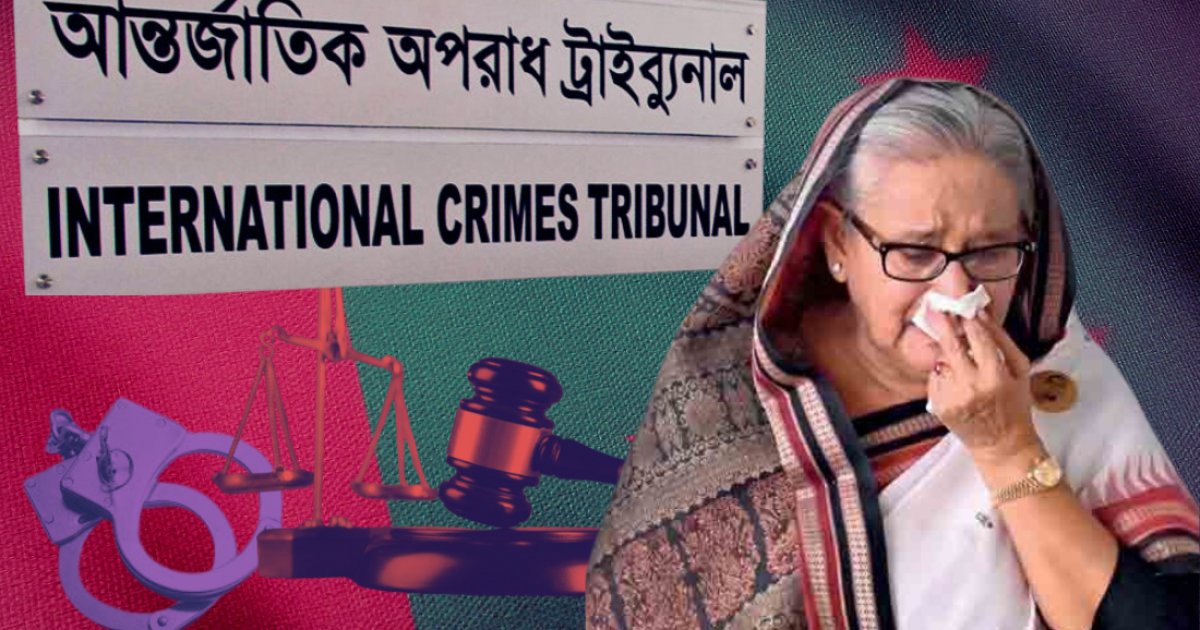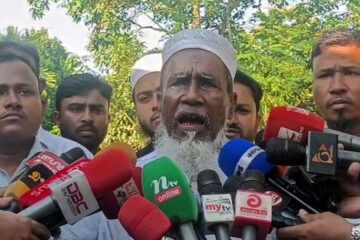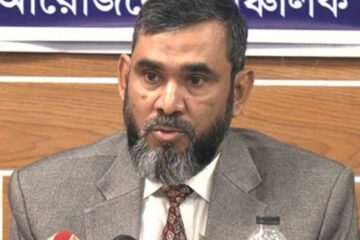Reactions poured in across the political spectrum on Monday following the International Crimes Tribunal-1’s decision sentencing former prime minister Sheikh Hasina and former home minister Asaduzzaman Khan Kamal to death for crimes against humanity committed during last year’s July–August mass uprising.
Former IGP Chowdhury Abdullah Al-Mamun, who testified as a state witness, received five years’ imprisonment and was pardoned by the tribunal for full disclosure.
Senior leaders of the BNP welcomed the ruling, framing it as a decisive blow against authoritarianism.
BNP Standing Committee member Salahuddin Ahmed said the tribunal had “established a milestone against fascism and dictatorship,” adding that although many believed the punishment could have been stronger, “this judgment proves that no matter how powerful fascism may be, its perpetrators ultimately face justice.”
BNP Secretary General Mirza Fakhrul Islam Alamgir echoed that sentiment, writing on Facebook that the verdict marked “the burial of all forms of dictatorship” in Bangladesh.
Bangladesh Jamaat-e-Islami Secretary General Mia Golam Parwar said there is no scope to question the death sentence handed down to Sheikh Hasina in the crimes against humanity case.
He described the trial as transparent, impartial, and conducted in line with international standards.
Speaking at a press conference held in response to the verdict, Parwar contrasted the proceedings with earlier trials of Jamaat leaders, which he claimed lacked credibility.
“Those cases were built on fabricated charges and testimonies, overseen by biased judges delivering predetermined verdicts,” he alleged.
Parwar reiterated that the current tribunal had upheld fairness and due process, adding that the judgment against Hasina reflected a legitimate pursuit of justice.
Islamist political group Khelafat Majlis also endorsed the ruling.
Its Ameer Abdul Basit Azad described the judgment as a “historic precedent” against enforced disappearances, extrajudicial killings and abuse of state power.
“Hasina and her associates repeatedly violated human rights,” he said, adding that the verdict set “a new benchmark for justice.”
The strongest reactions came from student leaders and activists who led last year’s mass movement.
The Dhaka University Central Students’ Union (Ducsu) installed a large screen at TSC to broadcast the verdict live, with students celebrating by distributing sweets.
Ducsu Vice President Abu Shadik Kayem said students and families of martyrs were satisfied, but added: “We will only feel true relief when the sentence is enforced. She must be brought back immediately.”
The National Citizen Party (NCP), whose convenor Nahid Islam emerged as a prominent voice during the student uprising, called the verdict “a milestone in world history.”
At a press conference in Dhaka, Nahid demanded the government bring Hasina back from India within a month.
“We will not be satisfied until the sentence is executed,” he said, urging swift trials for remaining cases linked to the July uprising and appealing for “all collaborators” to be prosecuted.
NCP Member Secretary Akhtar Hossain released a video message urging India not to provide refuge to Hasina, saying that only the execution of the verdict would deliver justice.
Families of the July martyrs also welcomed the tribunal’s decision but stressed that implementation must follow.
Mir Mahbubur Rahman Snigdho, brother of slain protester Mir Mugdho, said: “We are pleased, but unless she is brought back and the sentence executed, the families will not find peace.”
In Rangpur’s Babonpur, the home of first martyr Abu Sayed, emotional scenes unfolded as relatives watched the verdict on live television.
His father Mokbul Hossain said he hoped to see the execution “in my lifetime,” while his mother said the ruling brought some comfort but “our final demand is execution.”
From the state’s side, Attorney General Md Asaduzzaman termed the verdict a “landmark ruling” that upheld accountability toward “the martyrs, the nation and future generations.”
ICT Chief Prosecutor Mohammad Tajul Islam said any court in the world would have delivered the same judgment. “This verdict proves no one is above the law,” he added.
State-appointed defence lawyer Md Amir Hossain, who represented Hasina and Kamal in absentia, said he felt “deep distress,” noting that he could not appeal unless the convicts surrendered or were arrested.
The interim government called the ruling “historic” and urged citizens to remain calm and avoid any violence. It warned that attempts to create disorder would be met with strict action.
The Ministry of Foreign Affairs formally requested India to extradite Hasina and Kamal, saying New Delhi is treaty-bound to cooperate.
Law Adviser Dr Asif Nazrul confirmed another letter would be sent to Indian authorities, stating that sheltering the convicts would be viewed as “hostile.”
Home Affairs Adviser Lt Gen (retd) M Jahangir Alam Chowdhury said the national situation remained calm, with minor incidents handled promptly.
India’s Ministry of External Affairs said it had “noted” the verdict and reiterated its commitment to “peace, democracy and stability” in Bangladesh.



